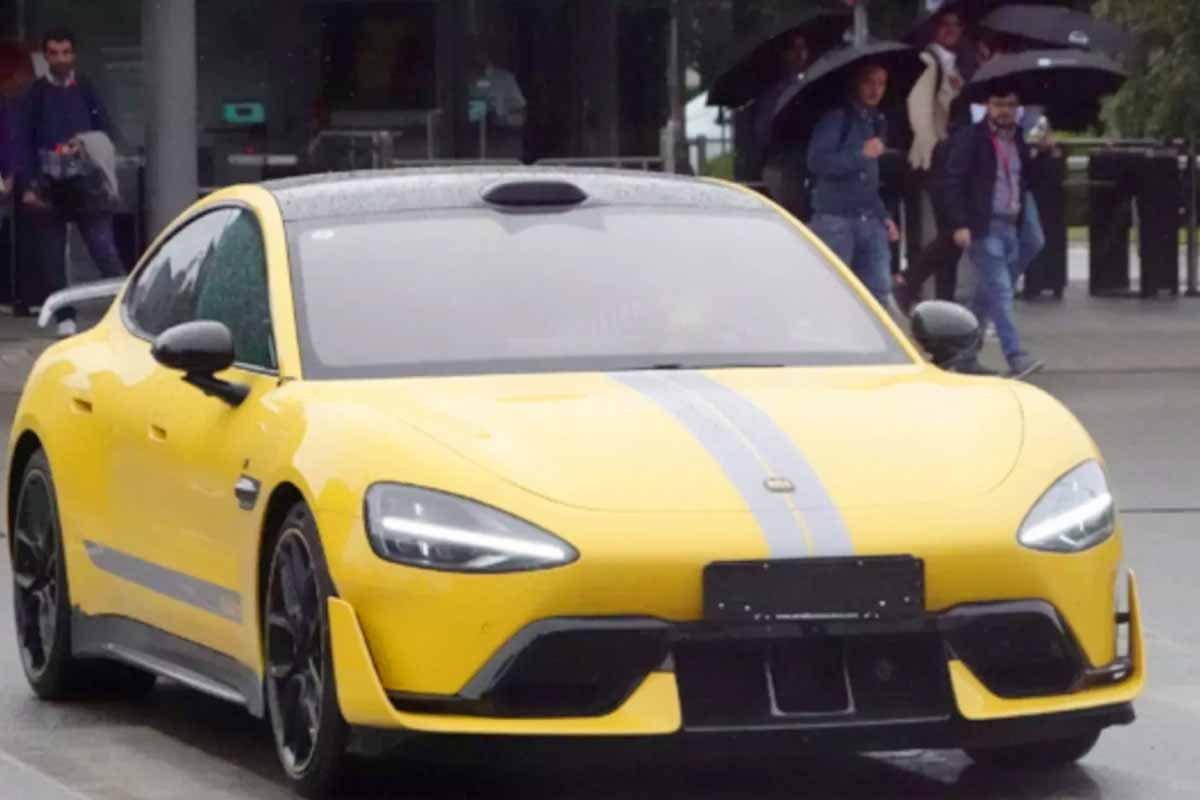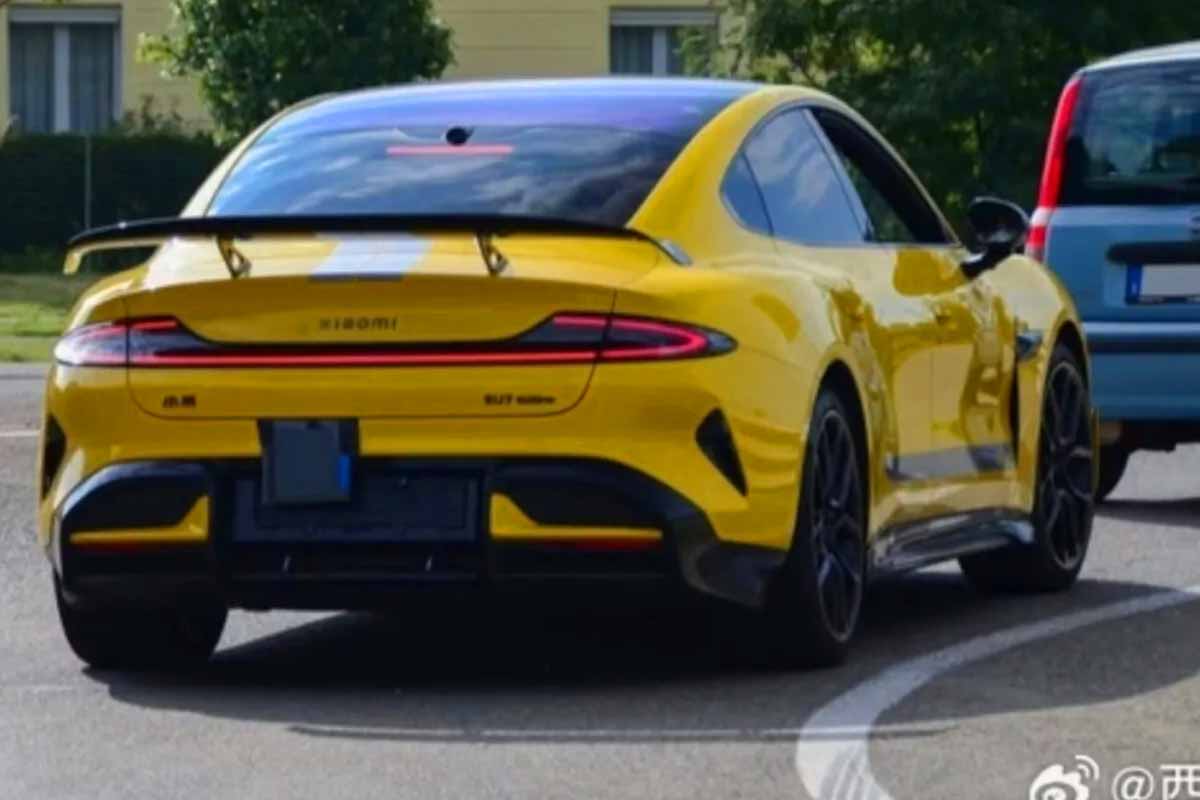
It's no rumor: a Xiaomi SU7 Ultra has been spotted leaving Ferrari's workshops in Maranello. An unusual scene, to say the least, given how unlikely it is to come across a Chinese electric sedan in the temple of Italian engines. Yet there may well be a more serious reason behind this visit than it first appears. Ferrari is studying the competition, and today, the competition comes from China.
An SU7 Ultra in the Prancing Horse's lair
The photo quickly circulated on social networks: a yellow SU7 Ultra with silver stripes, exactly the model used in Xiaomi's official communication, emerging from Ferrari's premises. A detail that escaped no one: this is the first time a Chinese electric car has been officially spotted in Maranello. And this scene comes less than a year before the presentation of the very first electric Ferrari, scheduled for spring 2026, code-named (or official) Elettrica.
This isn't the first time Ferrari has shown an interest in Chinese manufacturers. In February 2025, Ferrari CEO was seen visiting Leapmotoranother Chinese electric car start-up. And as early as April, Rumors of technological collaboration between Ferrari and Leapmotor began to circulate.
What do Leapmotor, Xiaomi... and Ferrari have in common? A key partner: Qualcomm.
The hidden link: Qualcomm

Since 2022, Ferrari has been working with Qualcomm Technologies on the integration of the "Snapdragon Digital Chassis", a connected platform that brings together the essential modules of the car of the future: digital cockpit, 5G connectivity, artificial intelligence, ADAS, OTA updates... in short, the software backbone of a car.
And this technology is not exclusive to Ferrari. In January 2025, Leapmotor announced that its new B10 SUV would also use this platform. Just as Xiaomi announced at the launch of the SU7 that it was using Qualcomm's Snapdragon Cockpit platform. These brands therefore share the same digital architecture, making the study of their vehicles particularly interesting for Ferrari.
An oversized spec sheet

But beyond the software ecosystem, it's above all the Xiaomi SU7 Ultra's mind-boggling specification sheet that attracts attention:
- 1,526 hp thanks to a combination of 3 electric motors,
- 0 to 100 km/h in 1.98 seconds,
- 350 km/h top speed,
- Nürburgring record: 7'04" for the production version, 6'22" for the Ultra prototype, faster than the Porsche Taycan
The SU7 Ultra is therefore the world's fastest production electric saloon. Its battery architecture, thermal management in extreme driving conditions, active aerodynamics and even its manufacturing process are all areas that may be of interest to Ferrari as it designs its first electric vehicle.
Ferrari is a world expert in chassis and steering. But when it comes to software, China's tech giants have a head start. Xiaomi, as a technology group before being a carmaker, has bet from the outset on a connected, fluid user experience, boosted by AI and 5G. This car is a showcase of modernity that Ferrari can't ignore.

A tense environment for Ferrari in China
This curiosity about Xiaomi also comes at a key moment. As with other European automakers, Ferrari sales are declining in China every year. And to appeal to China's younger, technophile clientele, the study of Xiaomi's codes is not insignificant.
Because the Xiaomi SU7 is not just a performance monster. It's also a commercial success: over 175,000 units sold in 12 months, queues lasting several months and a brand image boosted like never before for Xiaomi.
Xiaomi vs Ferrari: mutual fascination?
The respect seems to be mutual. Xiaomi CEO Lei Jun was spotted in a Ferrari Purosangue last year. And according to several sources, he's very interested in Ferrari's first electric model. An exchange of courtesies? Perhaps.